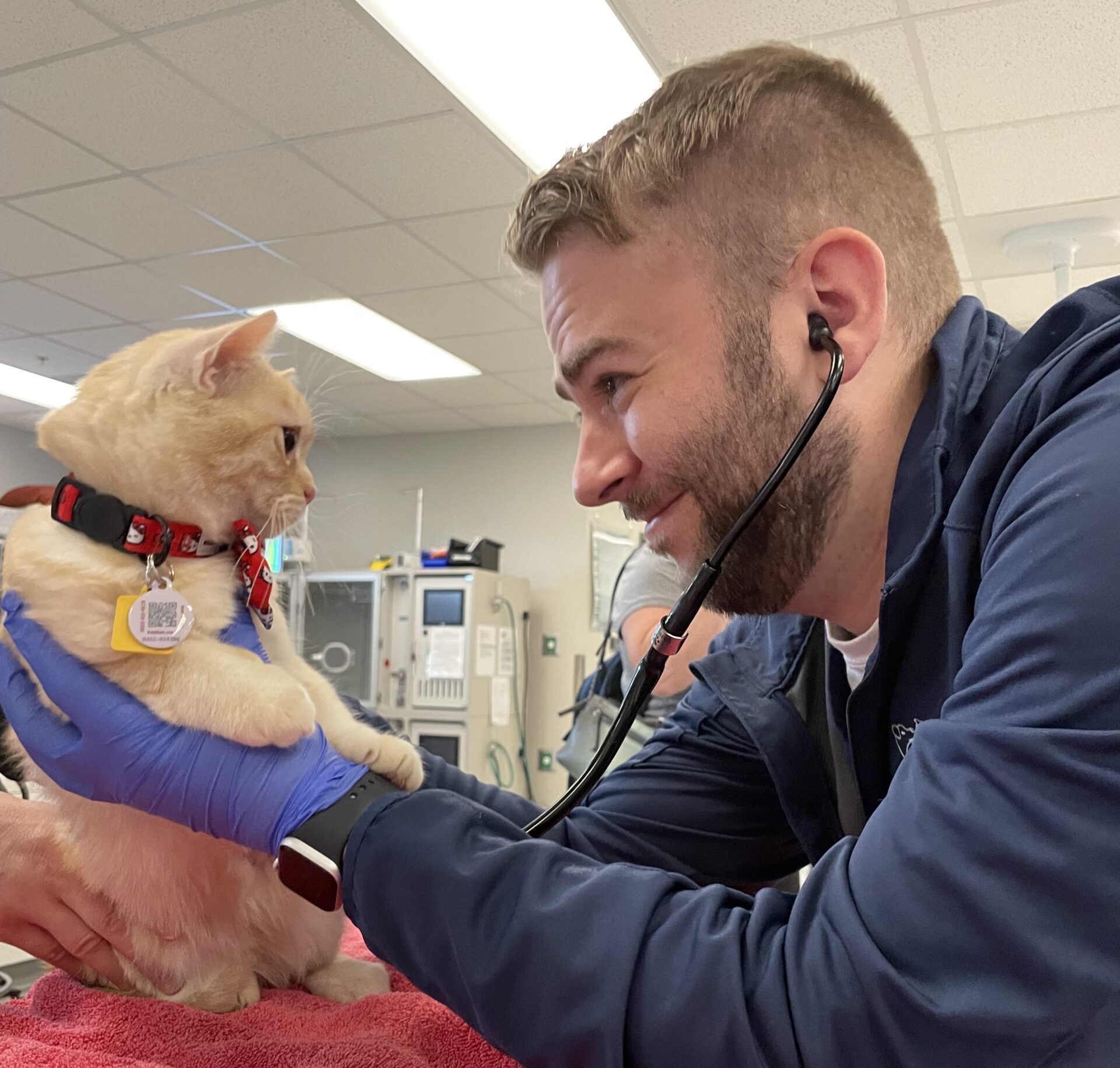
We are here as an extension of your primary care veterinarian to provide emergency care while their clinic is closed. We are fully staffed with an emergency veterinarian and technical team during our open hours.
Pet emergencies can be unexpected and scary, but our team is always available to help. We understand how much your pet means to you as a family member, and we will always treat them with compassion and kindness.
A blood test for dogs and cats may be recommended for preventive life-stage monitoring, or to diagnose a specific condition. A blood test allows us to learn information about your pet’s health which can only be found from collecting a sample of blood and having it analyzed. This includes a CBC (complete blood count) and blood chemistries that analyze chemical components in the blood. A CBC for dogs identifies and quantifies white blood cells, red blood cells and platelets in a given amount of blood. This information is helpful in learning more about your dog’s immune system and oxygen carrying capacity. Additionally, blood tests for dogs can also identify:
Because chemicals found in the blood stream can also correlate with specific organs, lab work for dogs can help determine more than just blood count. Lab work for dogs also can detect and help identify complex problems with body systems.
Allied’s mission is to save the lives of pets and sometimes that means they need blood or blood products due to an illness or injury. Most of our blood products come by way of the generous donations from our staff’s pets, reflecting our team’s deep commitment to the well-being of all patients. Donor animals are thoroughly examined and screened before acceptance into the program, adhering to strict age and weight requirements. Our blood processing equipment ensures the most effective handling of blood products, from the time of donation to the moment a hospitalized patient requires a transfusion.
If you would like your pet to be screened to become a donor, please contact bloodbank@www.alliedervet.com. We thank you in advance for your generosity.
Whether your pet experiences an accident or becomes ill, sometimes surgery is necessary.
Patients that need to be admitted to the hospital are cared for by a team of veterinary professionals with 24-hour monitoring and treatment in our intensive care unit (ICU). At Allied, we have the most sophisticated equipment to ensure all patients receive the most appropriate treatment.
While we want the best care for our contagious patients, we also want to protect the rest of our patients at the clinic. Our isolation ward is on a separate ventilation and sewage system, allowing us to isolate highly contagious patients while still providing them with the same excellent care. This prevents the spread of diseases and ensures that no other pet that comes into the clinic will come into contact with a known contagion.
Snake envenomation in pets can be treated with a combination of treatments, including antivenom, fluids, and other medications:
Urinalysis is a routine test that reports the physical and chemical properties of urine. It is used mainly to assess the health of the kidneys and urinary system, but it can also reveal problems in other organ systems and is important for diagnosing metabolic disease such as diabetes mellitus.
If your pet is experiencing respiratory issues, it’s crucial to seek immediate attention as respiratory distress is always an emergency. Oxygen therapy is a vital intervention that can significantly support your pet if they are having difficulty breathing. Our oxygen therapy options include specialized kennels which allow pets to receive oxygen support in a non-invasive manner, and high-flow oxygen capabilities utilizing a nasal cannula. Our experienced veterinarians closely monitor your pet’s condition and adjust the oxygen therapy as needed, while also keeping a close eye on their blood oxygen levels.